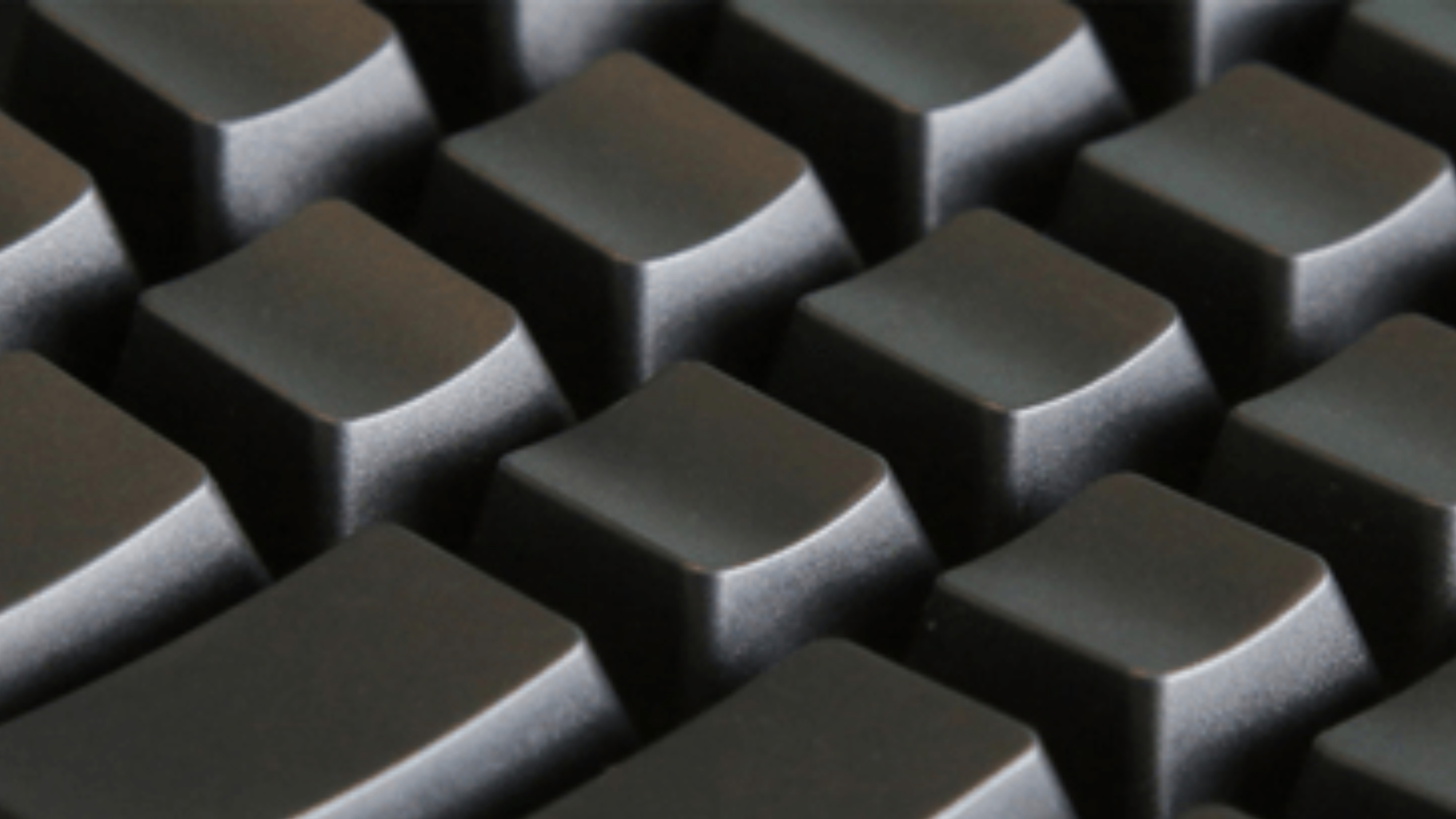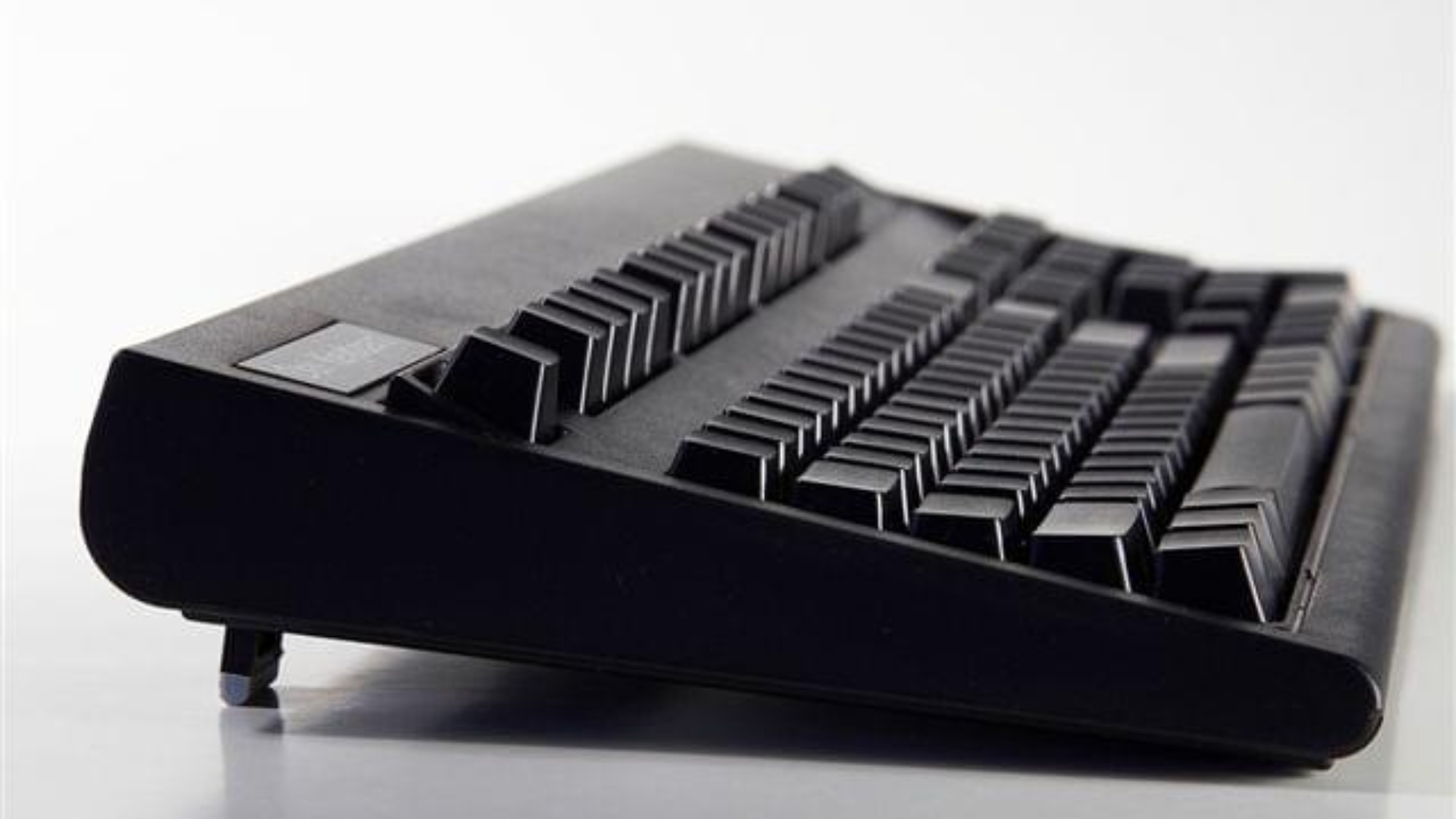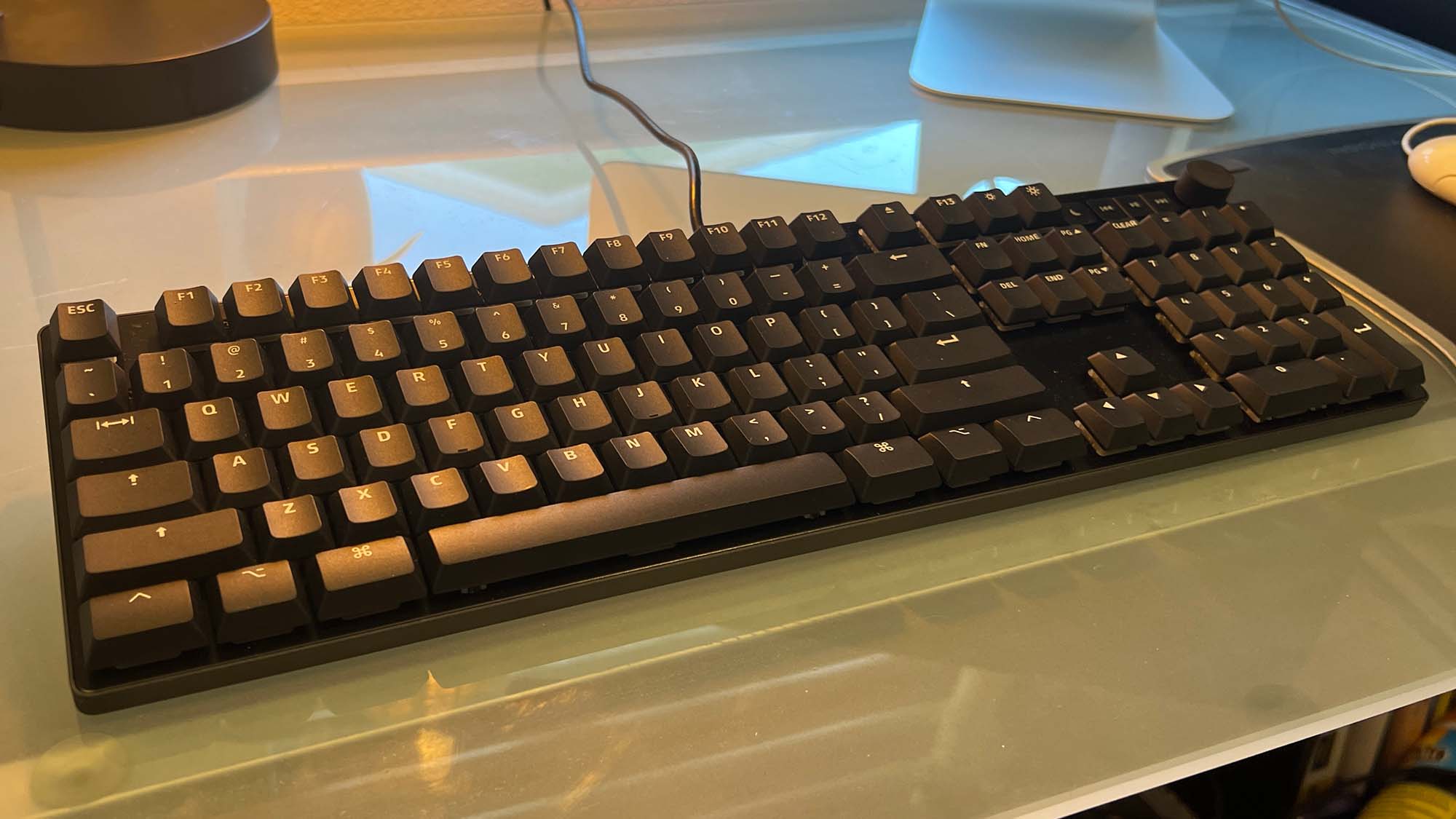How French schools gave us Das Keyboard, the most hardcore keyboard ever made
The Dark Souls of keyboards is all about speed, or lack thereof

If you have ever experienced typing on a Das Keyboard product, you might think that it was the work of some German engineer obsessed with the mechanical art of translating a perfect keystroke into the platonic ideal of a font in a word processing app. In reality, it's because nobody tought Das Keyboard's founder how to actually type.
Daniel Guermeur was a computer science student studying at Stanford University in California when he first encountered a keyboard in a semi-professional capacity. As a computer science student, he needed to type out countless lines of code under deadline, and he found himself ill-equipped for the task.
"I'm from France," Guermeur told me late last year, "and I was lucky to study computer science at Stanford University when I was 22 or 23, something like that."
"And you know, typing with two fingers like that," Guermeur said as he mimed the timeless hunt-and-peck method, "where everyone else is typing with ten fingers leaves you at a big disadvantage. Even if you have the same brain you type a lot slower, and therefore, you finish last."
Touch typing is a skill that writers such as myself sometimes take for granted. After spending so much time at a keyboard, we inevitably develop a muscle memory for what combinations of muscle movements produce the word "graphics card" or "MacBook Air", so we make things look easy.
But it takes constant practice to develop that ability, and you can't develop it if you don't force yourself to do so. So how do you get yourself to stop hunting and pecking? If you're Guermeur, you simply make it impossible to do.
Goodbye labels

While working as a software developer (Guermeur is also the founder and CEO of Metadot), Guermeur hadn't given much thought to the hardware side of things, and definitely not about becoming the founder of a beloved peripheral company.
Sign up for breaking news, reviews, opinion, top tech deals, and more.
But every great idea starts with a problem that doesn't have an readily available solution.
"One day, I needed to work fast, but it was frustrating because I was looking down at my keyboard so much," Guermeur said. "And I just had the idea that if I could not look, I would not look, so I need a keyboard with no letters on it. No description, nothing. So I asked my assistant to look for a blank keyboard on the internet and she came back a week later, she can't find any, it doesn't exist."
And with that, a revolution in typing was set in motion, though Guermeur didn't know it at the time.
I asked my assistant to look for a blank keyboard on the internet and she came back a week later, she can't find any; it doesn't exist.
Daniel Guermeur, Das Keyboard CEO
"I asked her 'Contact somebody in China with a keyboard factory over there and ask them to make the best keyboard they can, but blank,'" Guermeur said. "And three months later, this keyboard lands on my desk completely black and blank. I used it for six weeks, and I doubled my speed."
I couldn't tell you the psychology behind the crutches we use in everyday life to go about our day, but it's such a shockingly simple idea that it's amazing that a blank keyboard hasn't been a staple of computer classes and typing courses all along.
"So, at first, it's frustrating," Guermeur said of those initial six weeks. "It's slow, you need to guess basically; you get it wrong."
But you can't deny the end result, and soon enough, Guermeur's colleagues took notice.
Das Keyboard's incredibly humble origin story

"So, I'm a software guy. I'm a big geek. I love electronics, love software," Guermeur said. "But I had no plan to enter hardware, because as everybody knows, it's not an easy. It's very hard. Hardware has lots of challenges, with cash flow, with factories and supply chain, there is no end to it."
"I was happy working software on this keyboard," Guermeur said, "and people were coming to my office, looked at me looking at the keyboard, and they were like 'Wow, you must be really good'"
There's no denying that a blank keyboard is going to make anyone look hardcore, much the way Elden Ring player LetMeSoloHer is legendary for tackling the hardest boss in the Soulbourne universe with nothing but a clay pot on their head and a pair of katanas.
"There is a cool factor," Guermeur admits, "it's off the chart."
Nobody needs letters, it's just a mental block. It's 100% a mental block.
Daniel Guermeur, Das Keyboard CEO
Naturally, coworkers started asking Guermeur where they too could get a blank keyboard like he had. Sensing an opportunity and with no formal plan or business investment, Guermeur took a gamble on his idea.
"I said, 'Look, wait a month, and then you can buy it from my website.'" A website Guermeur then had to set up on the fly, as well as do the barest of bones marketing.
"I take a picture of my keyboard in my backyard, on my deck. I have one keyboard," Guermeur said, "just one. I set up a one page website with a buy button."
"And I thought, 'You know, I'm going to try to sell this for 30 days, with basically no investing, no investing in marketing, just emailing existing customers from my software business and friends and family and so on."
"And after 30 days, if I sell 15 then I will invest in marketing; 10, I'll think about it; and five I'd stop. So on a Monday morning, we opened the website."

From there, news of the keyboard began to spread and Guermeur says the site received so many hits in the next few days that it was completely overloaded with millions of visitors. It didn't end there though. When the New York Times profiled Guermeur and his keyboard soon after the site launched, things really blew up.
"It was on TV, MTV, CBS News, it was just everywhere," he said. "So in 30 days, I sold a quarter of a million dollars worth of blank keyboards."
"And the thing is," Guermeur laughed, "I didn't have any."
Guermeur had set his website up with just the one keyboard actually in existence, with no infrastructure in place to actually fill that many orders.
"So, we had to contact the customers and say, 'Look, we're sorry, we sold out. If you want to wait, then we'll ship in three months. But if you don't want to wait, that's okay, we'll give you a refund, no problem.' 95% of the people said, 'This keyboard is so badass, we're going to wait.' And that's how the business started."
Opting for keyboard purgatory — and paradise
People don't realize that a keyboard is probably the object they touch the most every day.
Daniel Guermeur, Das Keyboard CEO
In the nearly 18 years since, Das Keyboard has become one of the most acclaimed keyboard manufacturers, though the majority of its products do, in fact, have key labels on them. I've reviewed a couple of them myself, though not the Das Keyboard 4 Ultimate, the company's latest iteration of the blank key design, and the quality of the designs can't be denied.
"We don't cut corners," Guermeur said. "We just want the best quality possible. So people feel good about it."
This does make the product more expensive in the end, but Guermeur believed from the start that quality is worth paying for, and Das Keyboard's legion of devotees is evidence enough that he's right.

As for company's design philosophy — beyond its focus on quality parts and construction — is pretty straightforward, born in a lot of ways out of Guermeur's initial problem with his typing speed: what do I, the user, need to do? If I need to learn to touch type, make it impossible for me to do otherwise.
But what if I want to go to lunch and need to put my computer to sleep? Include a button for that. What if I need to charge my phone at my desk? Add USB ports to the keyboard where they are easy to access. Need to control the volume of your speakers or headset? Add a volume knob.
Many of these features (and more) can be found on the various models Das Keyboard produces, but the underlying focus on quality construction and simplicity remain across the entire portfolio.
"People don't realize that a keyboard is probably the object they touch the most every day and so once you have something that is good quality, that's really functional, it makes you much more engaged and it's really like driving a nice car."
Dare to take up the challenge, dear reader?
Das Keyboard has taken on a certain mystique as a typing purist's keyboard maker, and ultimately, it's in the name Das Keyboard itself.
"One of my co-founders is German," Guermeur said, "and quality is German, the idea of it, at least. And so we thought Das Keyboard is nice play on words because "das" in German is the word "the" in English so it becomes The Keyboard."
The company's latest offering (with key labels), the Das Keyboard 6 Professional, is available now, but if you want to try your hand at the latest in hardcore keyboarding, the Das Keyboard 4 Ultimate is the company's latest blank keyboard model.
"I can tell you," Guermeur said, "nobody needs letters, it's just a mental block. It's 100% a mental block."
Editor's note: An earlier version of this article mispelled Daniel Guermeur's surname in a number of places. It is Guermeur, not Guermuer. We apologize for the error.

John (He/Him) is the Components Editor here at TechRadar and he is also a programmer, gamer, activist, and Brooklyn College alum currently living in Brooklyn, NY.
Named by the CTA as a CES 2020 Media Trailblazer for his science and technology reporting, John specializes in all areas of computer science, including industry news, hardware reviews, PC gaming, as well as general science writing and the social impact of the tech industry.
You can find him online on Bluesky @johnloeffler.bsky.social
